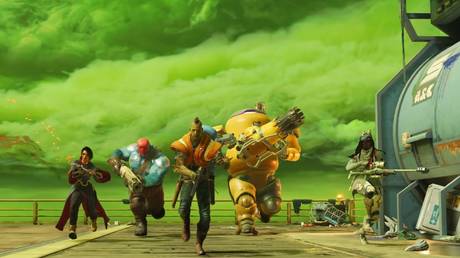Did the "woke agenda" doom Sony's $200 million game?
Is Concord's notably brief lifespan indicative of studios catering too much to a 'modern audience'?

In the realm of video games, trends emerge and fade, and companies that fail to adapt or cling too long to outdated practices can face dire consequences. Sony appears to be the latest casualty in this cycle with the launch of its new title, Concord.
This isn’t the first occasion we’ve witnessed a notable failure in the gaming industry. Back in 2018, Konami launched Metal Gear Survive, a multiplayer survival game, just as interest in survival and crafting games was waning. The expectations were bleak, especially after Konami had parted ways with the iconic creator of the Metal Gear series, Hideo Kojima. MGS Survive was criticized for appearing rushed and lacking polish, deviating significantly from its predecessor aside from a few familiar elements. Consequently, it became an object of ridicule in the industry and served as a cautionary tale for developers who disregard their fanbase.
Fast forward six years, and we find ourselves observing a similar misstep involving Sony, a significant player in both gaming hardware and software.
Concord, a first-person multiplayer hero shooter that took eight years and up to $200 million to develop, launched to an underwhelming reception with fewer than a thousand players on PC at launch. There could be various factors contributing to this lack of interest. For one, the market is not particularly inviting for a new hero shooter. Popular titles like Overwatch, Valorant, and the upcoming Marvel Rivals dominate the genre, and while Concord was launched at full price, many competitors have transitioned to free-to-play models. This left Concord with a tough uphill struggle to entice players with something distinctive, appealing, and worth the cost—criteria it evidently failed to meet.
Moreover, Concord’s character designs have drawn criticism, described as resembling elements from a DEI handbook—characters devoid of memorable or unique identities and instead reflecting common diversity themes. The game even portrayed a killer robot that resembled an unattractive yellow barrel, which likely contributed to player disinterest. For a hero shooter, compelling characters are essential for engaging players; if the heroes fail to captivate, players are less likely to be tempted to dive into the game.
The aftermath has been one of derision and bewilderment. Observers have pointed fingers at DEI mandates affecting entertainment, mismanagement of game design, and a misguided belief that games should cater solely to activists on social media. As Concord's player count dwindled, even with heightened publicity, Sony chose to pull the plug, delisting the game from stores and issuing refunds.
While failures like this occur frequently in the industry, what sets this situation apart is that it involves Sony rather than a smaller activist studio, the hefty investment for disappointing results, and the reasons for its failure. Recently, there’s been an observable backlash against entertainment aimed at ‘modern audiences,’ as demonstrated by titles such as Star Wars Acolyte, Rings of Power, and now Concord. Rather than active protests or petitions, there’s a growing trend of audiences simply opting out of engaging with such content, as evidenced by the cancellation of Acolyte and the closure of Concord.
The reasons behind Concord’s dismal performance are complex. The choice to release it as a full-price game amidst a competitive free-to-play landscape was a significant misstep. Being a new IP, it also lacked built-in fanfare or an established audience ready to invest. Sony's entry into the hero shooter market is late, as high demand is subsiding, particularly with other games like Marvel Rivals and Valve’s Deadlock thriving during their invite-only beta phases. A well-crafted game could potentially carve out a niche despite the competition.
Additionally, players are growing weary of activism and DEI quotas. Many are not interested in poorly designed characters that prioritize avoiding offense over genuine depth. There’s merit in creating inclusive characters that spotlight less-represented cultures and identities, but if a character's diversity is its sole defining feature, players may not find them appealing enough to engage with for extended periods.
Concord is not the only title under scrutiny for its approach. Another similarly criticized game, Dustborn, failed to maintain even 100 players during its first three weeks after launch. Featuring gameplay mechanics that revolve around confronting “racist cops,” it has struck many as a poorly executed parody of the woke movement. Another upcoming title from Sony, Fairgame$, appears to be treading a similar path as Concord based on its recent trailer.
The discussions surrounding Concord, Dustborn, and other like-minded games hopefully signal a wake-up call for game studio executives to reassess their strategies. After all, sustaining a business in the gaming industry relies on having players who are willing to buy and engage with the games, regardless of the DEI points that might be accumulated in the process.
Jessica Kline for TROIB News












